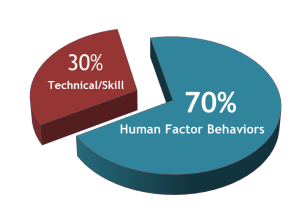
Defining the Success Profile
Motorcoach operators need an accurate success profile for every job to ensure they hire the right people. When hiring, ask yourself, “What are the actual job behaviors that account for variance in performance outcomes? What makes my ‘best’ employees so good? What they do or don’t do that sets them apart from their barely acceptable counterparts?”
Beyond Minimum Qualifications: The Role of Success Profiles
Remember, minimum qualifications tell you who you can hire, but they don’t tell you who you should hire. Success profiles necessarily incorporate skill sets and the other 70 percent of non-technical behaviors (what some call soft skills).
The Need for Comprehensive Success Profiles
Companies need to know what they’re looking for beyond technical competence, such as a CDL, a score on a skills-knowledge test, or a degree from a technical program. They focus on skills or credentials and little else and need to look at behaviors that distinguish superior performers from those who are minimally qualified. In short, they need a complete job success profile against which they can systematically measure every applicant.
The Importance of High-Performance Behaviors
At best, they are working off some job description. A job description describes what all or most of the job incumbents do but fails to identify which job behaviors distinguish between top performers and the rest of the pack. Not only does the presence or absence of such high-performance behaviors differentiate between your best and worst drivers, but they also create trouble on the job if they are absent.
Defining High-Performance Behaviors
There are two requirements for high-performance behavior on which employers should base success profiles:
Your “best” drivers do it, and your “worst” drivers don’t, and
Trouble arises on the job if the behavior is absent.
These behaviors predict variation in job performance, and these are the behaviors you should check for when hiring.
Gaining Insights from Top Performers
Management is sometimes surprised that its “best” performers do the job efficiently and effectively. Some behaviors management may think necessary for success may be less critical—sometimes far less necessary—than imagined. The only way to get this kind of information is to sit down with the “best” performers and ask them how they actually do their work and do it so well.
Hiring for Behaviors, Training for Skills
A success profile is also vital for picking people for training programs that mainly emphasize hard-skill behaviors (not just for selecting among those minimally qualified or certified when making new hires). It is possible to teach people technical skills, but it’s almost impossible to teach other behaviors required for job success. It is much easier to hire for behaviors and train for skills.
The Art of Interviewing and the Need for a Success Profile
With a success profile of the whole job (not just its technical parts), interviewing becomes useful. However, all human resources literature suggests that the average job interview is, at best, a 50/50 proposition. Often, it’s less than that since we frequently find ourselves trying to choose between two people, neither of whom is especially good). The interview doesn’t need to take place—flip a coin.
If interviewers have training and experience, the odds of success go up. Still, it remains a most subjective situation without a success profile. After all, an entire industry has grown around teaching people how to pass interviews. The hiring authority must determine whether they are dealing with the “real” or the “trained” person. What’s more, interviewing behavior is different from job behavior. While some people interview well, their job performance could be better and vice-versa.
The Key Takeaway: Hire for Behaviors and Train for Skills
Remember, whether you are making a hiring decision or picking people for a training program, hire for behaviors and train for skills. The behaviors you select candidates with should reflect the job’s success profile. That profile must include the whole job and not just its technical components.
Unlocking Potential with Scheig Solutions
Scheig Solutions develops job-specific pre-employment assessments, interview questions, and performance evaluations designed to identify applicants who are a good match for the job. They have programs designed explicitly for motorcoach drivers, school bus drivers, and diesel technicians. They have been in business for over 30 years as recognized leading providers of behaviorally based hiring tools.
For more information, contact Chris Fisher at (800) 999-8582 or visit www.scheig.com.



